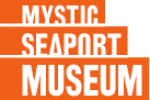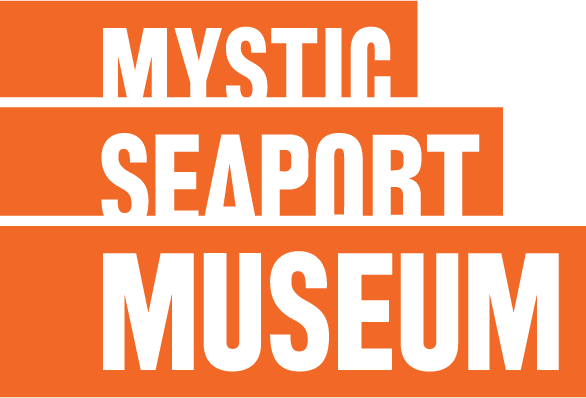Mystic, Conn. (July 25, 2014) – Mystic Seaport and the Mashantucket Pequot Museum & Research Center received a grant of $30,095 from Connecticut Humanities (CTH) to support a project, Connecticut Indian Whalers: Work, Community, and Life at Sea. The grant was given through the Connecticut at Work initiative, a program that supports a wide range of community-oriented programs that examine the past, present, and future of work in the lives of Connecticut residents, including The Smithsonian Institutions’ The Way We Worked exhibition as well as dozens of small exhibitions, internet-based applications, lectures, panel discussions, author talks, book and film discussions, and similar programming.
The project, spearheaded by Jason Mancini, Ph.D., senior researcher at the Pequot Museum, features a suite of digital, exhibit, and program offerings designed to raise school and public awareness about the men of color from Connecticut who labored on 19th-century whaling ships, in particular Native American men whose work experience was strongly intertwined with their social and kinship networks.
The project deliverables include online maps, lesson plans, an audio lecture and interview that will be featured on the Mystic Seaport for Educators website. The maps will also be featured in a digital exhibit panel at the Pequot Museum, along with updated museum panels based on Mancini’s research. The maps follow the lives of three Connecticut Indians: Peter George (Mashantucket Pequot), Amos W. George (Mashantucket Pequot; nephew to Peter), and Edward Uncas (Mohegan). Collectively these men sailed on 26 known whaling voyages from 1827 to 1867.
“We are grateful that this Connecticut Humanities grant will allow us to expand on one of the themes of the Charles W. Morgan’s 38th Voyage, how the American whale fishery was an early contributor to cultural globalization,” said Steve White, president of Mystic Seaport. “Native Americans from Connecticut left the reservations and traveled around the globe on whaleships similar to the Morgan. This project will highlight their journeys, interactions with various cultures and legacy. More importantly, the collaboration between Mystic Seaport and the Mashantucket Pequot Museum will make this new content accessible to the public and in particular, educators and students.”
In August, Mancini is presenting his research on Indian whalers to local educators as part of the monthly Mystic Seaport Teacher Professional Development Series. The audio from the lecture along with other digital products mentioned above will be available during the fall of 2014 on the Mystic Seaport for Educators website and on the digital exhibit panel at the Pequot Museum.
“I am honored that Connecticut Humanities is supporting the Connecticut Indian Whalers Project and the collaboration between the Mashantucket Pequot Museum and Mystic Seaport. Our organizations are forging a new kind of partnership that brings indigenous maritime histories to light through new discoveries and technologies,” said Mancini. “We hope this becomes a model for program development and an invitation to the public to learn more about this region’s Native American peoples and about hidden maritime history.”
About Mystic Seaport
Mystic Seaport is the nation’s leading maritime museum. Founded in 1929, the Museum is home to four National Historic Landmark vessels, including the Charles W. Morgan, America’s oldest commercial ship and the last wooden whaleship in the world. The Museum is located one mile south of Exit 90 off I-95 in Mystic, CT. Admission is $24 for adults and $15 for children ages 6-17. Museum members and children 5 and under are admitted free. For more information, please visit https://mysticseaport.wpengine.com/.
About The Mashantucket Pequot Museum & Research Center
The Mashantucket Pequot Museum & Research Center (MPMRC), part of the government of the Mashantucket Pequot Tribal Nation, is a non-profit educational institution that seeks to further knowledge and understanding of the richness and diversity of the indigenous cultures and societies of the United States and Canada. The MPMRC provides exhibits, programs, and research opportunities to encourage interaction with and among indigenous peoples, the general public, and the scholarly community. For more information, please visit: www.pequotmuseum.org
About Connecticut Humanities
Founded in 1975, Connecticut Humanities is a nonprofit affiliate of the National Endowment for the Humanities. Each year CTH brings hundreds of cultural programs to Connecticut where people of all ages and backgrounds are encouraged to express, share, and explore ideas in thoughtful and productive ways. From local discussion groups to major exhibitions on historic events, CTH programs engage, enlighten and educate. Learn more at www.cthumanities.org.

